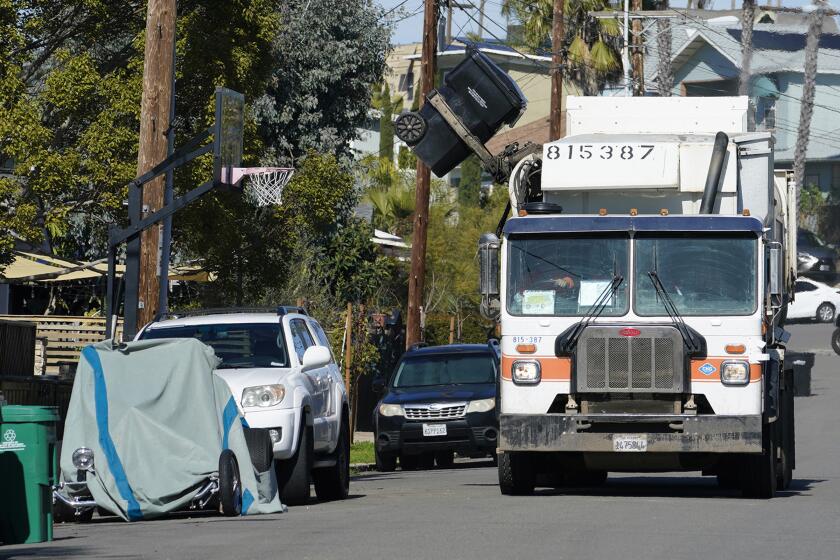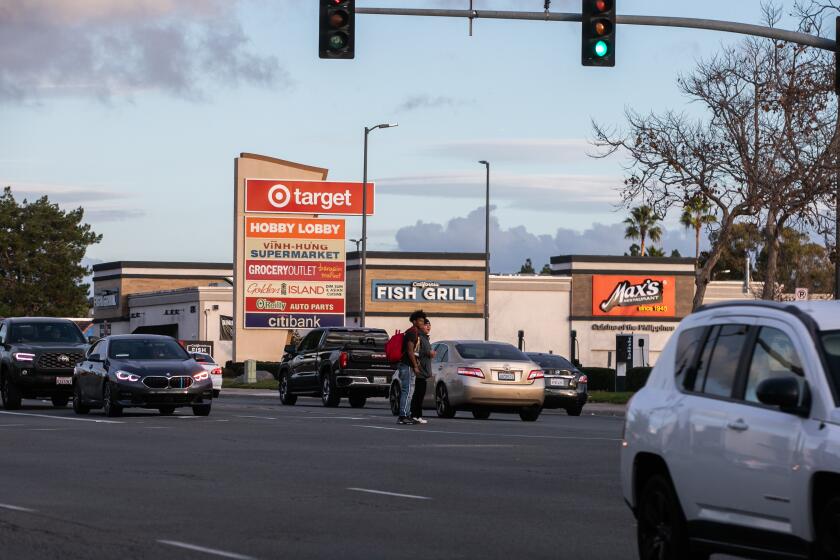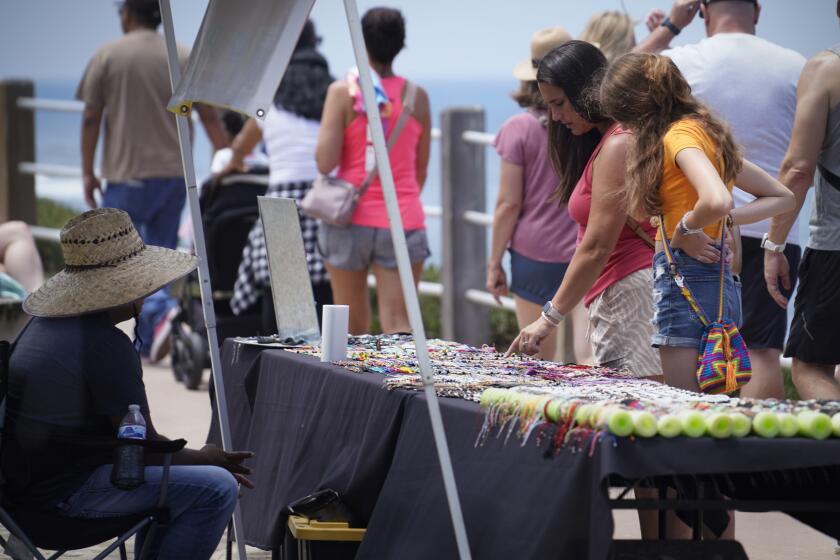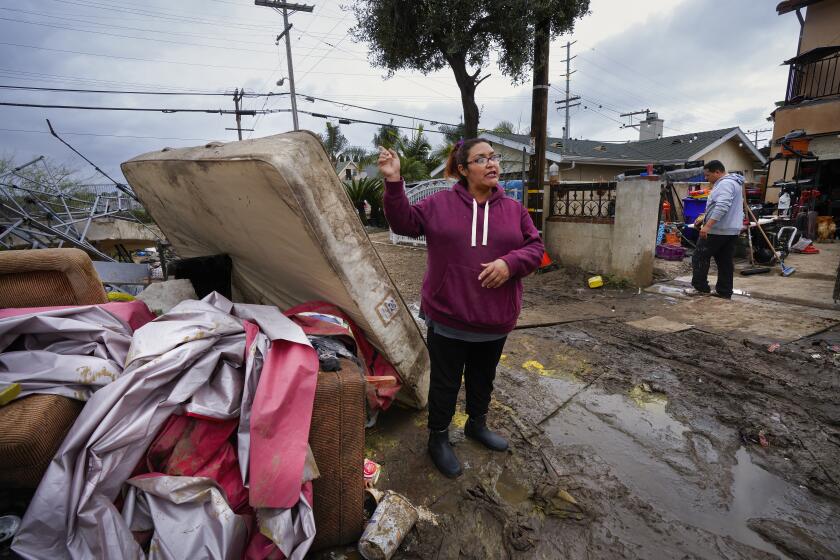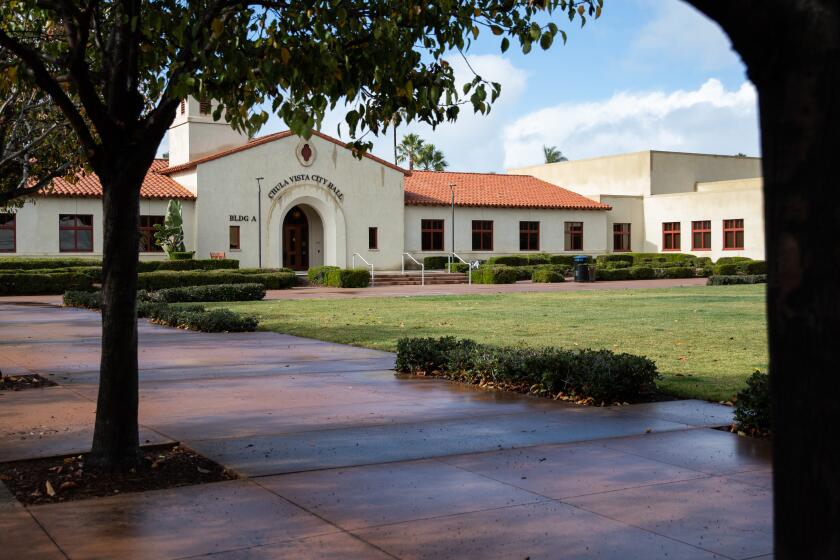Concerned about disrespectful behavior at public meetings, San Diego considers civility policy
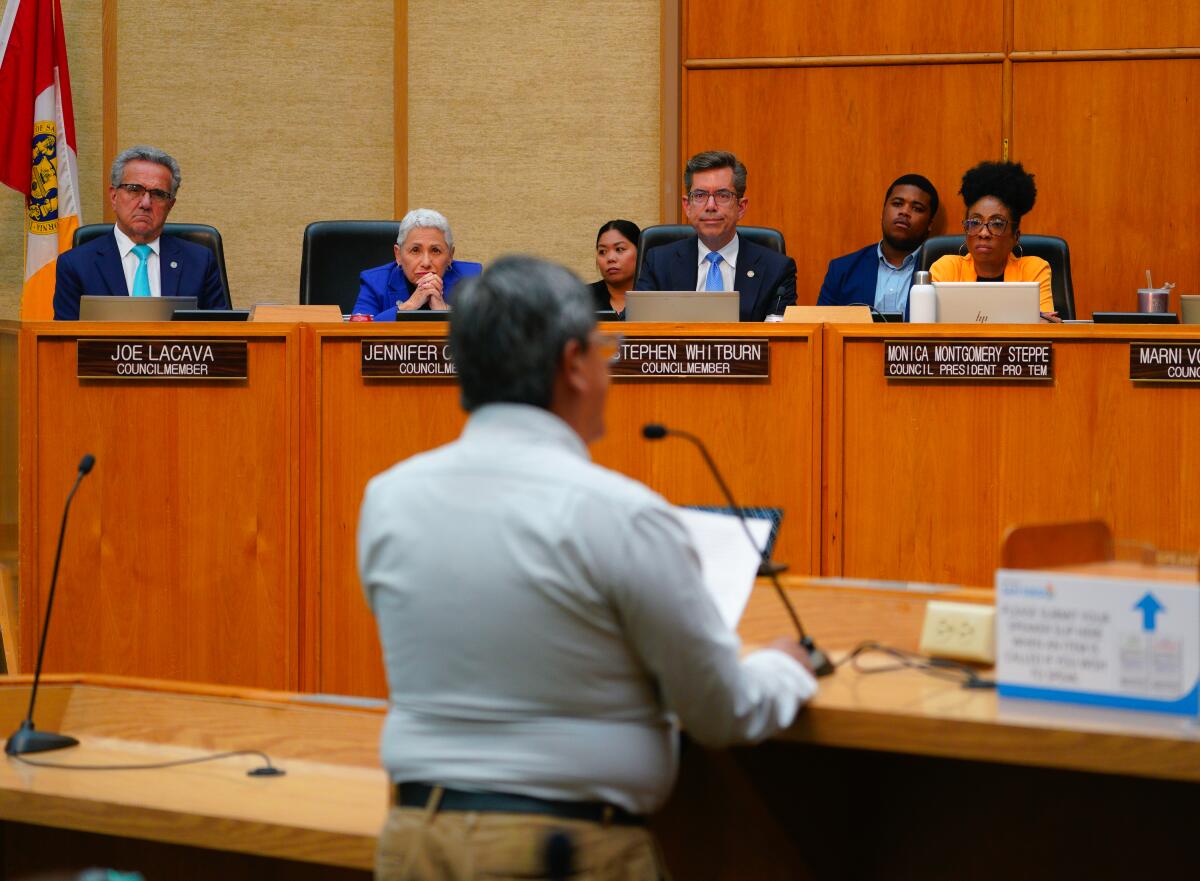
City officials disagree about how the policy would be enforced, which officials it would apply to and other details
San Diego officials say concerns about name-calling, interrupting and other disrespectful actions at public meetings have prompted them to begin creating a civility policy that would discourage such behavior.
The policy would prohibit abusive conduct and verbal attacks, especially attacks that focus on someone’s character or alleged motives. It would also require city officials to listen attentively during public discussions, instead of ignoring speakers they disagree with.
While the policy would target elected city officials, supporters say good behavior by them is likely to make members of the public more civil in their comments by setting the right tone and example.
“As democratically elected officials, we have an obligation to strengthen our democracy by setting an example for respectful, civil debate,” City Attorney Mara Elliott said.
San Diego is following the lead of other local government agencies that have adopted civility policies, including the county Board of Supervisors, San Diego Unified School District and the cities of Chula Vista and Del Mar. Despite the county policy, supervisors regularly struggle to rein in disruptions during public comment at their meetings.
City Councilmember Vivian Moreno said she’s concerned about how growing political polarization is changing the tenor of public meetings.
“Governments across our region have seen an increase in uncivil behavior from public commenters,” she said. “We’ve seen some of this behavior at our own council meetings, where they’ve become a forum for public commenters to shout out racial and antisemitic slurs.”
Elliott, Moreno and Councilmember Joe LaCava agreed last month to jointly create a proposed civility policy that would be presented to the full City Council for approval later this year.
But there is disagreement among the three officials about how the policy would be enforced, which officials it would apply to and many other details, such as when the council must speak with one voice to soften acrimony.
An initial proposal created by Elliott would apply only to the council, but Moreno said the city’s civility policy should also apply to the mayor, the city attorney and the city clerk.
Moreno also wants the policy to apply explicitly, within the bounds of the First Amendment, to members of the public.
“That will need to be carefully considered,” Moreno said.
Moreno also criticized a proposal from Elliott saying that once the council has taken a position on an issue, all council members must indicate the majority position when they speak to other organizations.
“This would severely limit council members from expressing constituent concerns with the state and federal government,” said Moreno, who represents the city’s southern neighborhoods. “The neighborhoods that I represent have been on the losing side of many City Council votes. I would think it’s a huge mistake to take away the ability of their council member to effectively advocate for them.”
Elliott, who conceded her proposal should be worded more carefully, said that rule would be limited in scope.
“It does not, at all, tie your hands in speaking about how you feel personally,” she told Moreno. “Of course you have to speak with your communities and be true to yourself.”
LaCava wants to eliminate part of Elliott’s proposal that would make the civility policy enforceable. Her proposal says council members couldn’t be fined or suspended, but that they could be singled out for criticism and possible censured.
Elliott’s proposal is based on a recommended civility policy for government agencies from the National Conflict Resolution Center.
“In my 20 years leading the NCRC, I’ve never seen this level of polarization and division in society,” Steve Dinkin, the center’s president, told council members during a Jan. 31 Rules Committee hearing. “Increasingly, our political leaders are showing a lack of respect for one another.”
Dinkin said social media and what he called the rural-urban political divide are contributing to the problem.
He said adopting a civility policy doesn’t mean a government agency is criticizing itself.
“Even if you believe in this moment that the City Council is working well with one another and that you are being collaborative, it’s really about the future,” he said. “Take this moment now to adopt a code so that you can preserve the sense of civility and decorum in the City Council for many years to come.”
Councilmember Raul Campillo said the city is making the right moves.
“Getting the details right really does matter, but the start of this is strong,” he said. “Communicating outwardly that we, as elected officials and as a government, are dedicated to civil discourse is one of the most important things we can do to reflect the dignity of our communities.”
Elliott, Moreno and LaCava are expected to present a proposed policy to the Rules Committee in the coming months.
Get Essential San Diego, weekday mornings
Get top headlines from the Union-Tribune in your inbox weekday mornings, including top news, local, sports, business, entertainment and opinion.
You may occasionally receive promotional content from the San Diego Union-Tribune.



